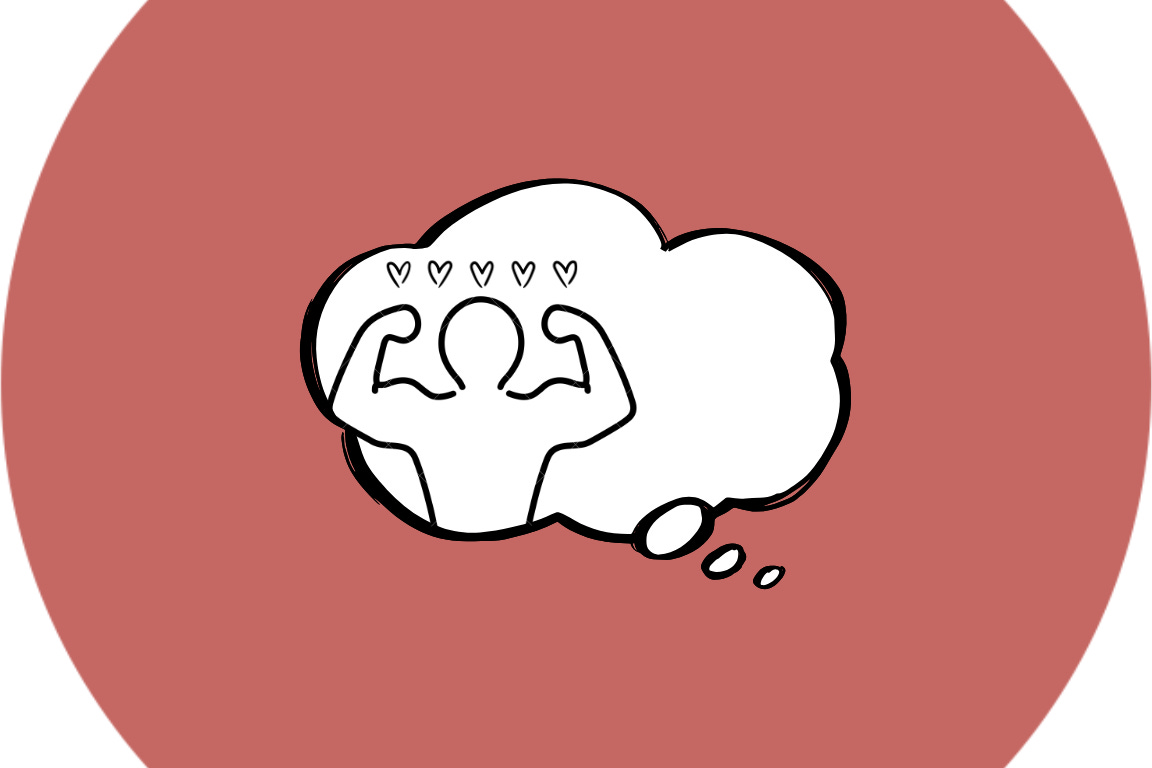Thinking Health
When we talk about improving health at the individual level, we typically focus on practical behaviors—tracking macros, logging steps, and even experimenting with ice baths and supplement stacks. Yet there’s an often-overlooked factor that can meaningfully affect our physiology: our mindset around these behaviors.
In other words, how we think about exercise, nutrition, and stressors can make the difference between sickness and vitality. This idea is rooted in pioneering research by Stanford psychology professor Alia Crum, who has demonstrated that perceptions and beliefs can literally alter the body’s physiological responses.
Her work reveals an encouraging principle: mindset can drive real, measurable health outcomes.
Milkshakes
One of Crum’s landmark studies is the milkshake experiment. Participants were split into two groups, each consuming identical shakes but labeled differently—one as a high-calorie indulgence, the other as a low-calorie sensible drink.
Despite being the same shake, participants’ bodies responded differently based on the perceived caloric content:
Those who believed they were drinking the indulgent shake experienced a steep drop in ghrelin (the hunger hormone), signaling satiety.
Those who believed they had the low-calorie “healthy” shake had an increased ghrelin response, physiologically suggesting continued hunger.
Our beliefs about what we’re eating can affect how full or hungry we feel, even at a hormonal level.
Housekeepers
A separate study that focused on hotel housekeepers adds another dimension to mindset’s surprising influence. Many housekeepers exceed daily exercise guidelines through their demanding work, yet a significant number believed they weren’t getting enough exercise at all.
In Crum’s study:
Half of the housekeeper participants were explicitly told that their work counted as exercise, reframing housecleaning as a legitimate workout.
This group reported better health and showed a modest but measurable drop in weight and blood pressure compared to the control group, even though their actual tasks didn’t change.
Simply acknowledging existing efforts led to noticeable improvements in biomarkers.
Stressed Out
Crum has also investigated mindsets around stress. Many of us instinctively categorize all stress as distress (universally negative). However, Crum’s research—and that of others—offers a more nuanced view: stress can sharpen focus, bolster motivation, and strengthen resilience if we interpret it as a challenge rather than a threat.
In Navy SEAL training, for example, those who believe stress is “enhancing” are more likely to outperform and persist.
There’s something to be said about resiliency, but there’s a fine line between “this can make me stronger” and “this is detrimental to me.”
Still, in everyday scenarios, adopting a “stress-is-enhancing” mindset likely yields better health outcomes.
Self-Health Perceptions
It’s no wonder Crum has been able to demonstrate a link between mindset and physiology. Several long-term studies already show that self-perceived health status predicts real-world health outcomes, including mortality:
In one study, individuals who thought they were less active than their peers had a 71% higher mortality risk over a 21-year period, regardless of their actual level of activity.
In another study, “feeling” unhealthy was associated with a range of physical detriments, including higher rates of heart disease, obesity, and depression.
As in most areas of health, social determinants of health, such as income and education, are key drivers of lower self-rated health.
I could easily proclaim that adopting a “this is good for me” or “I am healthy” mindset is the single key to a healthier future, but that would be:
A stretch, given that much of the data is correlational, not strictly causal.
A failure to acknowledge that our mindsets are shaped by everything from upbringing and culture to conscious choice.
My interpretation of Crum’s research is that it’s crucial to celebrate small wins, acknowledge moments when we make healthy decisions, and remind ourselves those count.
Mind Games
In today’s data-driven health era, you can measure nearly everything if you want to. Amid all that data, it’s easy to forget how powerfully the mind can influence well-being—even down to the physiological level.
“Amidst new drugs, fancy technologies and AI, we often overlook the most profound and powerful structure of modern healthcare — the human mind.”
~ Alia Crum, Associate Professor of Psychology and Medicine, Stanford University
Ultimately, this isn’t about ignoring science-based interventions. It’s about augmenting their impact by leveraging the science of beliefs, which can truly shape biology. Changing how we think about our health may be one of the best interventions available.
What I’m reading this week:
How AI Will Reinvigorate Consumer Tech, Digital Native
Mapping the effectiveness and risks of GLP-1 receptor agonists, Nature
A future read soon as academic journals get rid of paywalls :/
OpenAI has created an AI model for longevity science, MIT Technology Review
Kids Turn to a Mental-Health Chatbot to Share Their Anxieties, WSJ




